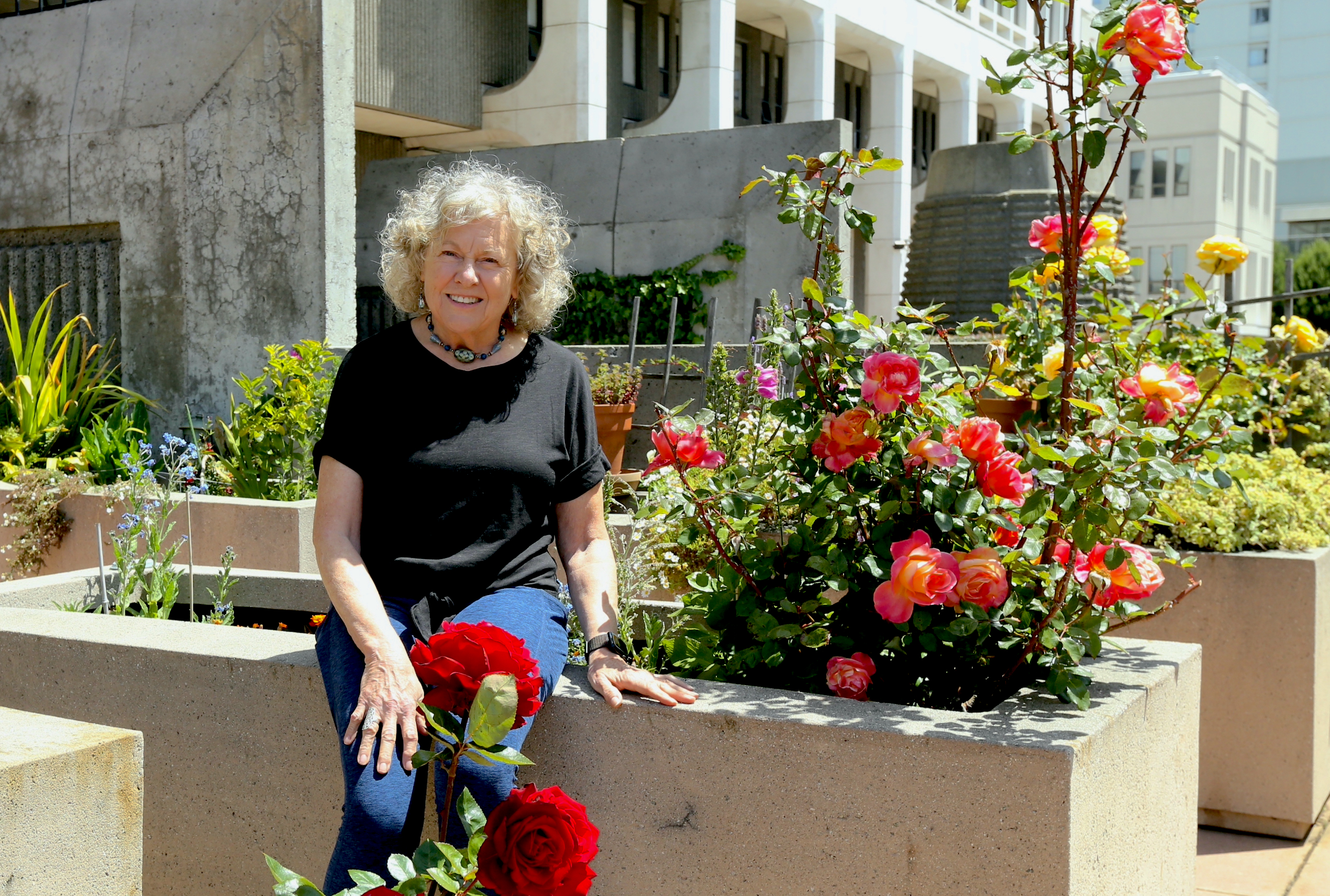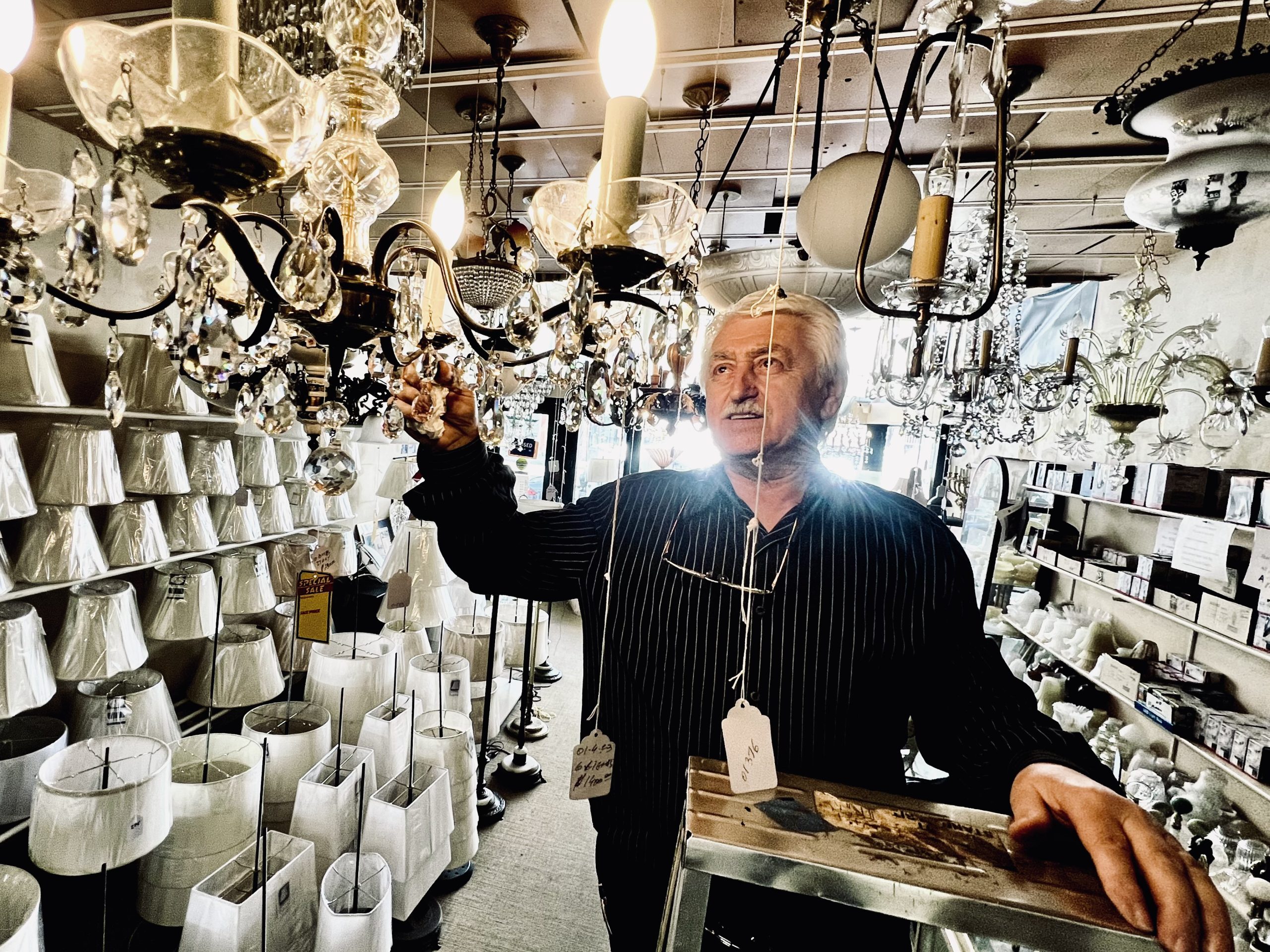Retirement sends Vonn Scott Bair full speed into long days as actor, playwright and game developer
“Do what you want, and you will never work a day in your life.” That old adage, intones 66-year-old Vonn Scott Bair, “is a myth, a lie, a LIE.” He’s been doing what he wants since retiring eight years ago, but said, “I work longer and harder than I ever have.”
It’s not that Bair didn’t enjoy his job as a clerk-typist for the Public Utilities Commission. But his pension, savings, and living simply allowed him to walk away from the 9-to-5 workplace and dive deeply into what he really loves: a life of theatre and creativity.
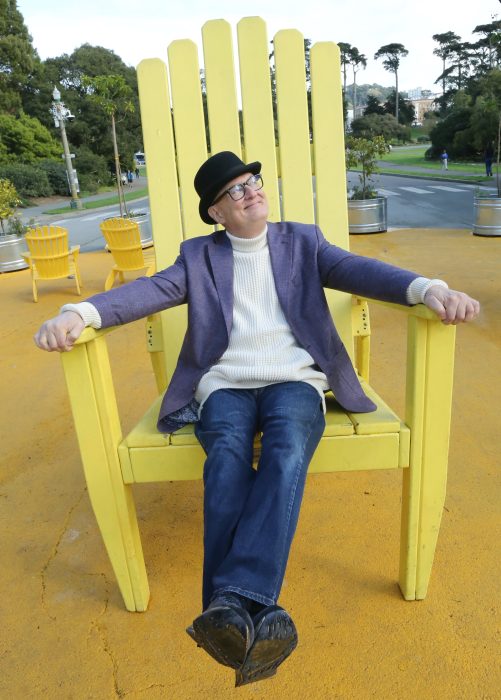
Bair had been acting and writing plays well before his retirement. Since then, though, it’s become more than a full-time job. “It’s what I want to do; I’m living my dream.” He’s written dozens of short plays for the theatre and has, by his own account, appeared in front of a camera more than 300 times in various indie films.
You’ll begin to realize the depth of his creativity when you learn he is also developing board games. One of them has reached the “looking for an agent” stage. So, he squeezes in meetings with gamers and developers in between scribing, acting, and rehearsing for the theater. Unlike his plays, which are preceded by months of research, “the games come to me in my dreams,” he said.
Balancing all these activities is not easy, but it suits Bair, who lives alone in the Haight-Asbury district. “It’s what I want to do and it’s paying off,” he said. “I have a lot to learn. It’s rather fun to have a lot to learn.”
Bair’s bearing – over six feet tall, 220 pounds, balding, and with a deep speaking voice – has often put him in the role of evildoer. “If you are an actor who looks like me,” he said with his typical wry sense of humor, “you will get to play a lot of bad guys.”
An evil character
In his most recent job, he played a prison guard at an internment camp for Japanese Americans during World War II. Kintsukuroi, now on the festival circuit, had its world debut this spring in San Francisco’s Japantown.
Yet Bair personally found evil characters boring and eventually tired of playing bad guys. Realizing that if he wanted other roles, he’d have to “create them himself.” But what to write about?
What really appealed to him were acts of altruism. He wondered, for example, what motivated the people who risked their lives to save Jews during the Holocaust He turned to Israel’s official memorial of non-Jews who came to their aid, “The Righteous Among The Nations.” He found no single commonality but noticed that most who were celebrated on stage and in film were men.
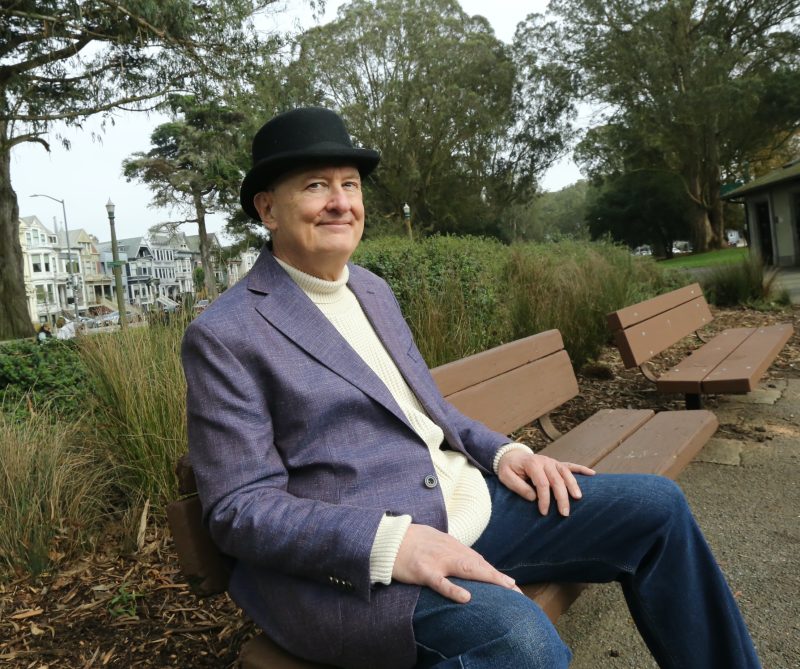
So, he decided to address the gap by focusing on the “Righteous” women, especially those lesser known.
Righteous women
He has now written four plays, all of which have been produced on stage or had a Zoom reading. “The Whisperers” is about Irena Gut Opdyke, a Polish nurse who hid 12 Jews in the cellar of a Nazi’s villa where she worked and smuggled many others out of the ghetto and into the forest. “Don’t Think About It” is about Marion van Binsbergen, a Dutch American social worker and psychoanalyst, who saved roughly 150 Jews, most of them children, during the occupation of the Netherlands.
“The Interpreter” features Tineke Buchter Strobos, a psychiatry student and Dutch underground member who collaborated with her mother and grandmother to rescue more than 100 Jewish refugees as part of the Dutch resistance. His fourth resistance film, “Le Plus Dangereux Criminal in the French Southeast” focuses on Mary Jayne Gold, an American heiress who helped hundreds of European Jews and intellectuals escape from Nazi-occupied France.
“Unlike the males renowned as ‘Righteous,’ all of the women worked as private citizens, which entailed greater risk due to their lack of legal protections, and some endured extreme violence to do their work,” Bair pointed out.
Another series of his short plays revolves around works by famous artists such as Jan van Eyck, Velasquez, Van Gogh, Magritte, and Rothko. “Las Meninas” is a witty dialogue in which Velasquez tries to get a reluctant King Philip IV of Spain to let him paint his family. Eventually consenting, the king laments, “I shall live on through—yet only in the reflected glory of a mere painter as if the Sun reflected light from the moon.”
Born in Connecticut, Bair was a “Navy brat” whose family moved often. Wherever they lived, his parents made it a point to immerse Bair and his younger sister in cultural events. After graduating from high school and holding a series of sales and temp jobs, he decided to cultivate his writing skills and enrolled in the creative writing program at San Francisco State University.
No pay but free food
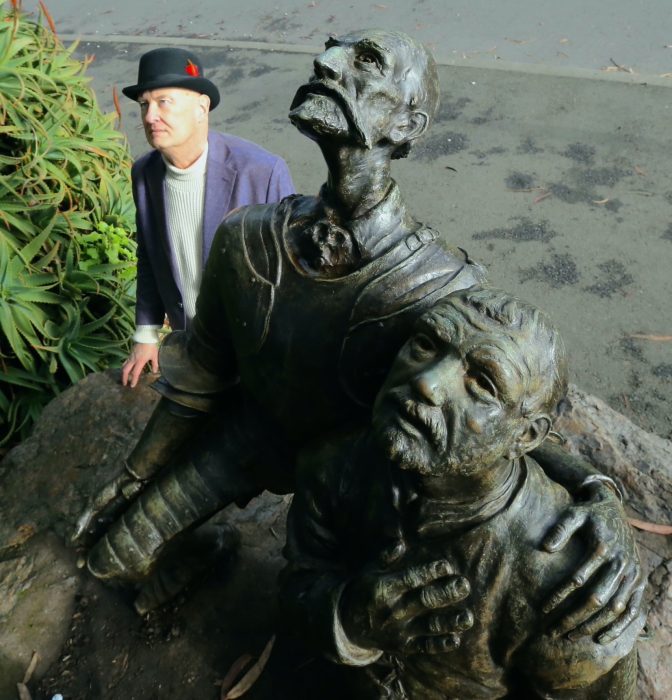
Yet graduation found him at a loss, stuck, no closer to the stage than. Until one fine morning, he saw a flyer on a bulletin board in a coffee shop near his home. Looking for grips for an independent film, it read, “Long hours, no pay, free food!” He, and everyone else who applied, was hired. Most didn’t stay long.

For Bair, it was a great life. “Intense work for 15 minutes and then an hour of hanging around the snack bar.” He would have stayed behind stage, but one day, the actor who played the villain didn’t show up. Next thing he knew, someone was shouting, “Bair, get on stage.” The role called for a mean-looking guy, and as the director told him, “You’re just naturally mean-looking.”
He was so good, the author rewrote the part so he’d have a major role. “I didn’t know I could act. Someone else had to tell me.”
Though he can more often be seen on film than on stage, he recently appeared in the Playwrights Center of San Francisco’s Short Play Showcase, where he played a rule-abiding airport security guard who derived pleasure in frustrating a harried passenger. Bair is a member of the center as well as the Dramatists Guild of America.
He also directs and acts for Drama with Friends, which presents short plays on Zoom once a month. “Las Meninas” was its first public performance, last month at Ruth’s Table.
While theatre has been in decline, in San Francisco, and throughout the country, Zoom productions have filled some of that void and kept Bair’s calendar full. He is deeply committed to supporting the Bay Area’s struggling theatre community.
.We’re not attracting the middle class who filled the seats at concerts, theatre, and museums,” he lamented. “Just this year, at least 10 local theatres have closed, and others are teetering on the edge. The best I can do is write plays and get them out there and hope to help turn this around.”



